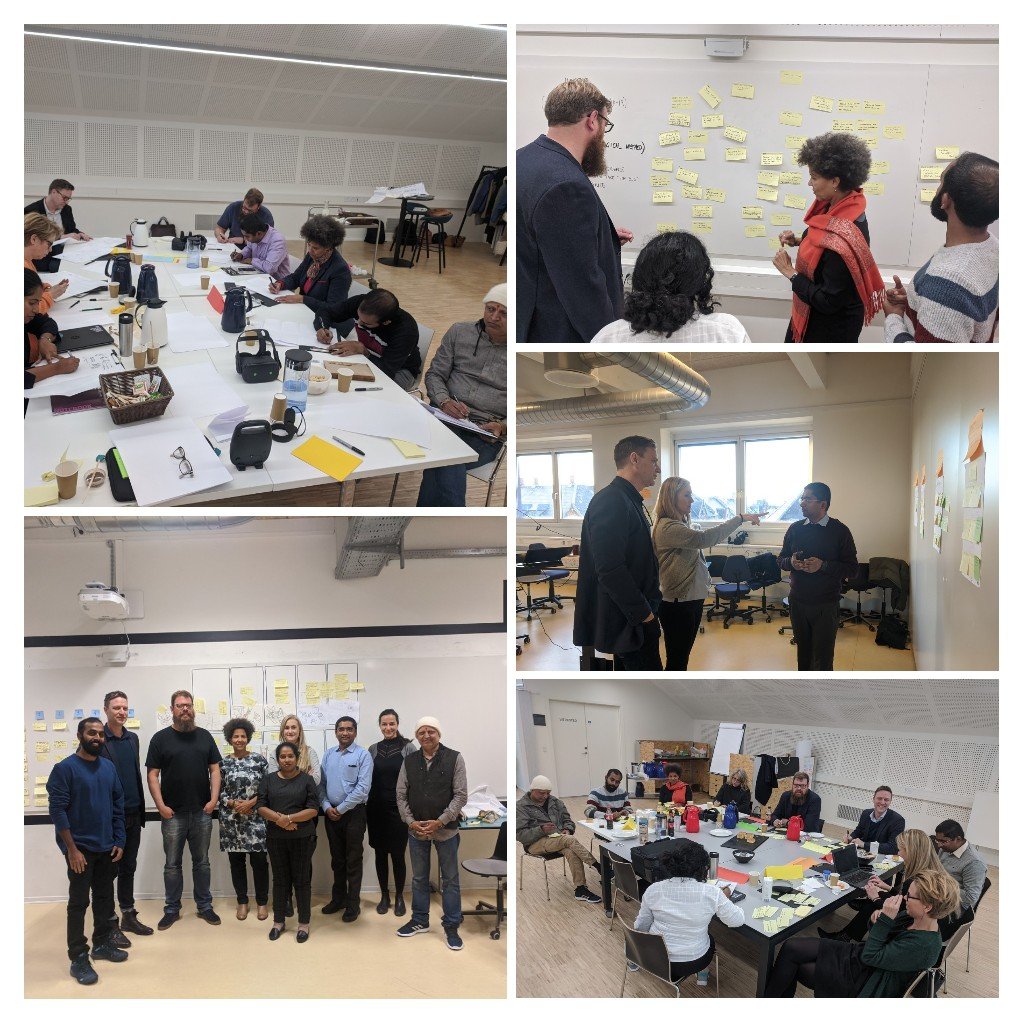Magical experience, massive rewards: How Bosch use tech for good to help break down boundaries
Following on from Billing Brook School’s recent story about their innovative approach to student independence, we’re continuing our series looking at how innovation is being used to help people with additional needs.
This time we’re expanding our focus to Denmark to hear from Heidi Mills, Global Strategic Lead for XR at Bosch, on the work taking place using Virtual and Extended Reality to open up new opportunities and break down boundaries.
Originally, we at Bosch began speaking with municipalities in Denmark concerning various new technologies. During these conversations we found there was an increasing focus on how to proactively engage children with special educational needs between the ages of 5 and 15 in becoming more self-reliant and more active members of society.
We also explored financial savings for the individual municipalities, who currently have hired people to guide each student on the their way to and from school, or usage of taxi services, which in Denmark has an annual expenditure of $190million.
One technology, in the form of a Virtual Reality bus ride, offers institutions and schools to gain access to the daily life skill simulation of how to take public transportation, designed for students from all around the world.
The simulation is customised to specific bus routes and is designed to expose the students to real-world experiences gradually, without overwhelming them with multiple sensory inputs in the beginning. This enables a smooth transition from dependence to independence.
The VR bus ride is tailored for user groups with learning disabilities, and people with Autism Spectrum Disorder (ASD) and Attention Deficit Hyperactivity Disorder (ADHD).
Once the VR bus ride was created, we wanted to test the validity of learning in VR and the rate of transference to real life. We did this by training 8 students, between the ages of 10 and 15 years, with 4 to 6 sessions of 30 minutes. Then we invited their parents to wait for their children at the bus route’s end stop.
Each student was then sent off on the bus to take the journey on their own, which they had practiced in the VR bus ride simulation, and the result was overwhelming – there were no errors, no stress moments - for the first time in their young lives, each student took the bus on their own.
Research has shown a positive correlation of VR therapy in managing conditions such as Autism Spectrum Disorder (ASD), Attention Deficit/Hyperactivity Disorder (ADHD), Anxiety, Hypersensitivity and Hyperactiveness, but we got to experience it first-hand.
That was invaluable and became the basis for us moving forward and wanting to develop more within this space.
This became the foundation for the VR bus ride, which was launched in early 2022 by Bosch.
Based on our magical experience and the way we learned that VR can enhance the transference of skills, we decided that we want to develop the tools needed to provide people with additional needs worldwide, with the freedom to become active participants in society and enrich their quality of life.
The VR City Platform project is inspired by the need for more advanced immersive technologies designed to support and enhance the skillsets and confidence of people with learning disabilities, anxiety, ADHD and ASD. Those who, for various reasons, find it difficult to engage in different contexts can, within a virtual universe that corresponds to certain aspects of the real world, learn to overcome the barriers that stand in their way.
Combined with the skillset enhancement, we learned that social interactions were a foundationally crucial element that had to be included. Learning cannot be completed if you cannot get through the front door due to fear of meeting others or engaging with a cashier at checkout or other scenarios.
An example of this would be a person with anxiety who enters into an ordinary social setting and learns how to stay focused on the task at hand whilst dealing with multiple people, noise distractions, loud colours and so on. For others, the focus may be to learn a skillset for future employment opportunities.
We initiated activities in the Nordic countries due to the high level of technology integrated into the special needs schools already. VR headsets are already an active part of everyday education and there are fast adoption rates of new technologies.
Now in 2024, we are initiating activities across Europe in support of the European Social Inclusion Focus Strategy.
The European Union has entered into a ‘10-year Strategic Social Inclusion Focus for EU’ plan from 2021 to 2030, where the focus is on supporting individuals with learning disabilities, ASD, ADHD or other challenges in three main areas: job training, financial savings and educational enhancement.
At a later stage, we would love to open our platform and create a more employer-focused perspective - where a deeper understanding of how people with certain challenges see the world would be portrayed.
This is in order to educate employers how to best support their needs, hereby creating a better and more inclusive society from both sides.
We would love to work with any organisation anywhere that wants to try our different platforms - either the VR bus ride or the VR world platform as a whole. We really feel that if we invest in making sure people have the tools and environment they need to do their job, and enjoy their work, we're going to have a really talented workforce in the near future.
Want to know more?
Find Bosch’s VR bus ride on the Microsoft Azure Marketplace.



